How many of these common sexist phrases have you used?

12 Common Sexist Phrases Hiding in Plain Sight

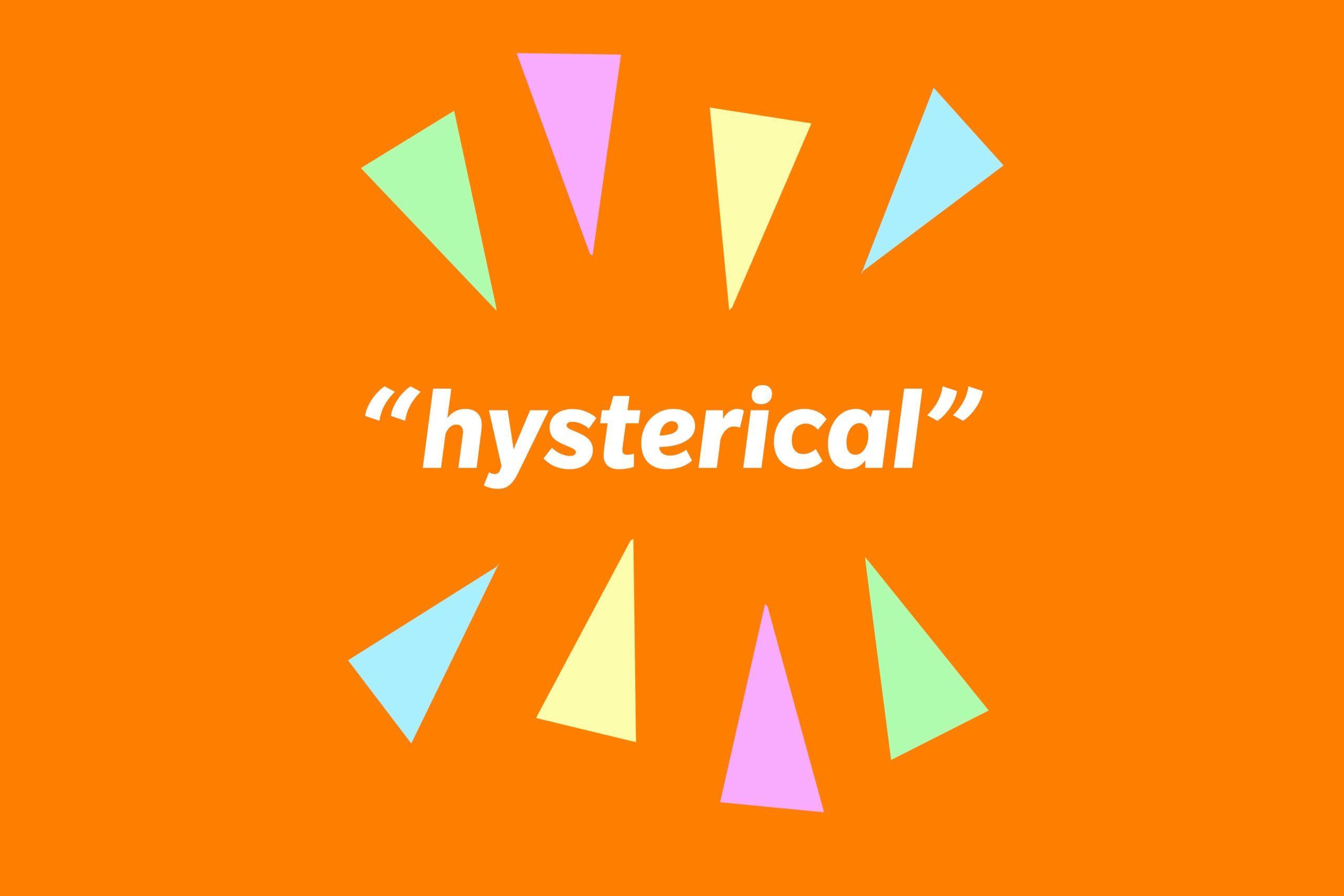
Hysterical
Have you ever described someone as being in hysterics or crying hysterically? Now, it’s just part of our everyday vocabulary, but it’s probably the best example of the multiple ways women have been silenced and dismissed throughout history. This dark origin story started with the ancient Greeks, who thought that a woman’s uterus could wander throughout the rest of her body, causing a number of medical and psychological problems, including but not limited to weakness, shortness of breath, fragility, fainting and general “madness.”
Centuries later, Victorian doctors (who were almost exclusively male) really latched onto the idea that the uterus was the source of essentially any health or psychological problems a woman may face. The diagnosis? Hysteria, from hystera, the Greek word for womb. Female hysteria was a catch-all term for anything men didn’t understand or couldn’t manage relating to women, and it was a valid excuse for institutionalizing them. And even though female hysteria was discredited as a condition—which didn’t happen until 1980—the word and its variations continue to be used to refer to someone who displays extreme and exaggerated excitement or behavior.

Feisty
According to Mastracchio, the etymology of some words—like feisty—may not include a connection to gender, but the cultural history of the word shows that it has been used almost exclusively along gender lines. “A lot of the words that are particularly gendered have animalistic connotations—feisty being one of them,” she says. “It’s usually used to talk about two things: an unruly animal, or an unruly woman.” You’re unlikely to hear an unruly man referred to as feisty, Mastracchio explains, because the word has feline connotations, and it’s typically women who are associated with cats.

Career woman
A good way to check whether a word or expression is inherently sexist is to ask whether a male equivalent of the word exists. Two of the most prominent examples are career woman and working mother. Ever heard of a career man or working father? Not often, particularly in the case of the former. This harkens back to the Victorian ideology of “separate spheres,” in which a woman’s domain was the home, while men were in charge of the rest of the world and society, including working.
So even more than 100 years since women entered the professional workforce, it’s often considered the exception, not the rule. And of course, if a woman has a career, there’s the assumption that she cares more about it than having a family. Remarkably, use of these common sexist phrases persists today, despite the fact that women now make up the majority of the U.S. workforce.
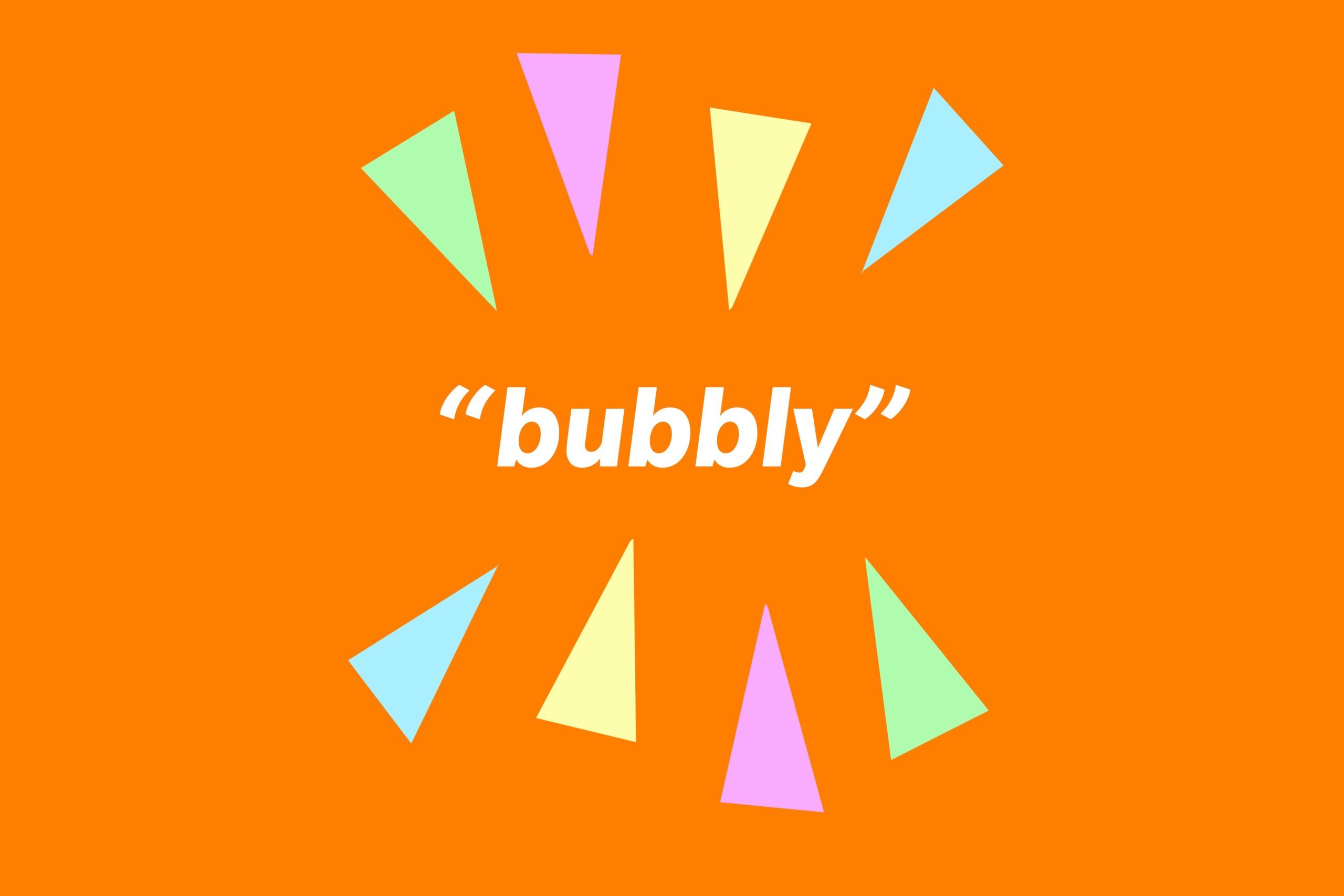
Bubbly
In addition to animals, women are also associated with carbonated or otherwise fizzy beverages—usually in reference to their personality. According to Mastracchio, the use of the word bubbly to describe women began in the 1920s, during the flapper era and Prohibition. Champagne, thanks to its bubbles, was seen as frivolous, light and unserious (despite having a relatively high alcohol content of 12%). As women were making social gains during the era (everything from getting shorter haircuts and hemlines to gaining the right to vote), calling them bubbly was a seemingly endearing (though sexist) way of diminishing their intelligence. And as Mastracchio points out, bubbly is also used to describe the sound of a woman’s voice, while men’s voices are more likely to be called booming, deep or rich.
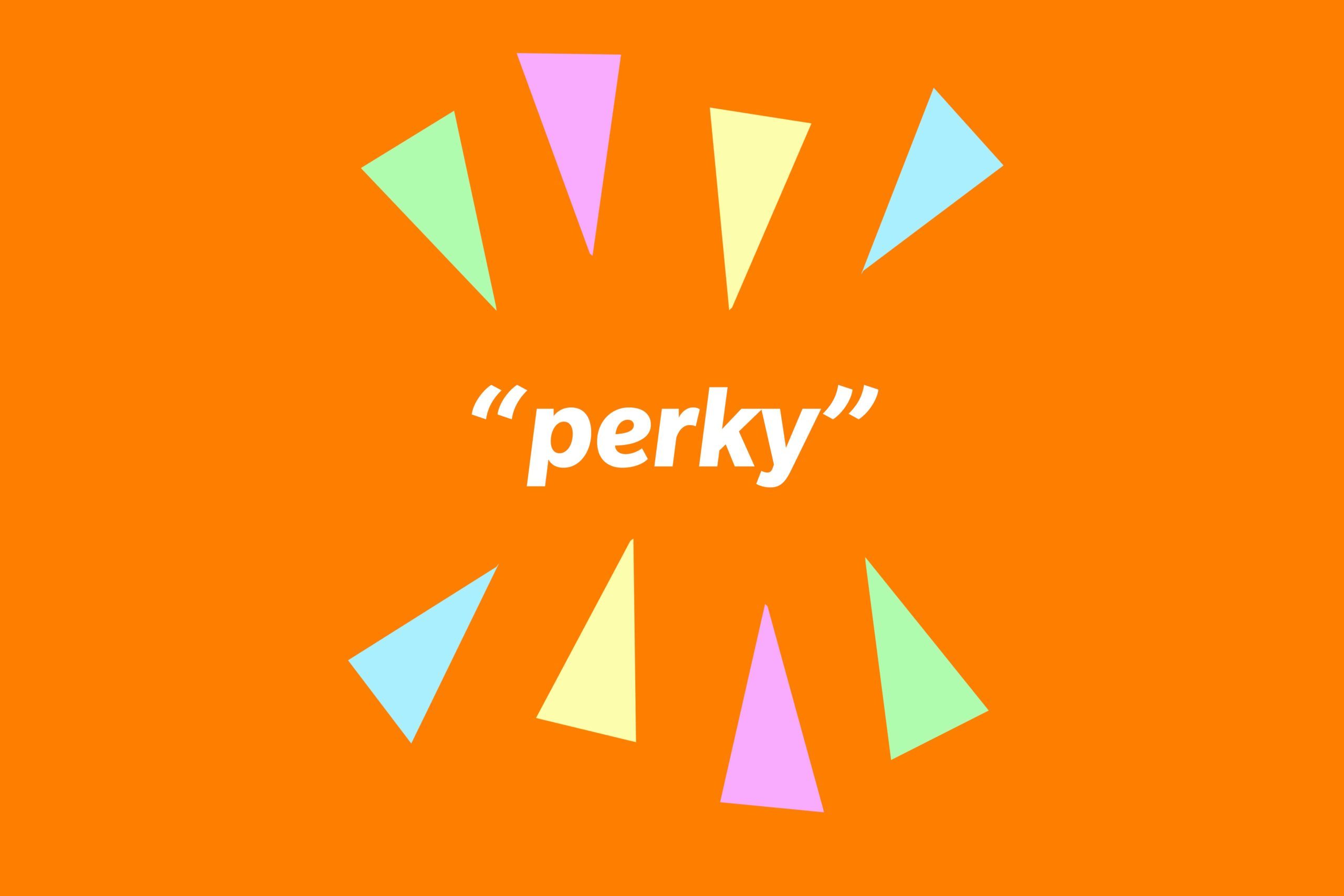
Perky
While we’re on the topic of cute-sounding names that are only applied to women, let’s talk about perky. Beginning in the 1930s, perky was a vulgar term used to describe the physical characteristics of a woman’s breasts, Mastracchio explains. Shedding its surprisingly offensive origin, the word evolved to describe someone with a “lighthearted, young, plucky” personality (which, naturally, only applied to women). Interestingly, Mastracchio points out that both plucky and perky—along with other words like chirpy, perch and, of course, chick—are examples of using bird imagery to describe women. Although there are both male and female birds in the wild, they are almost exclusively feminized in language and culture.
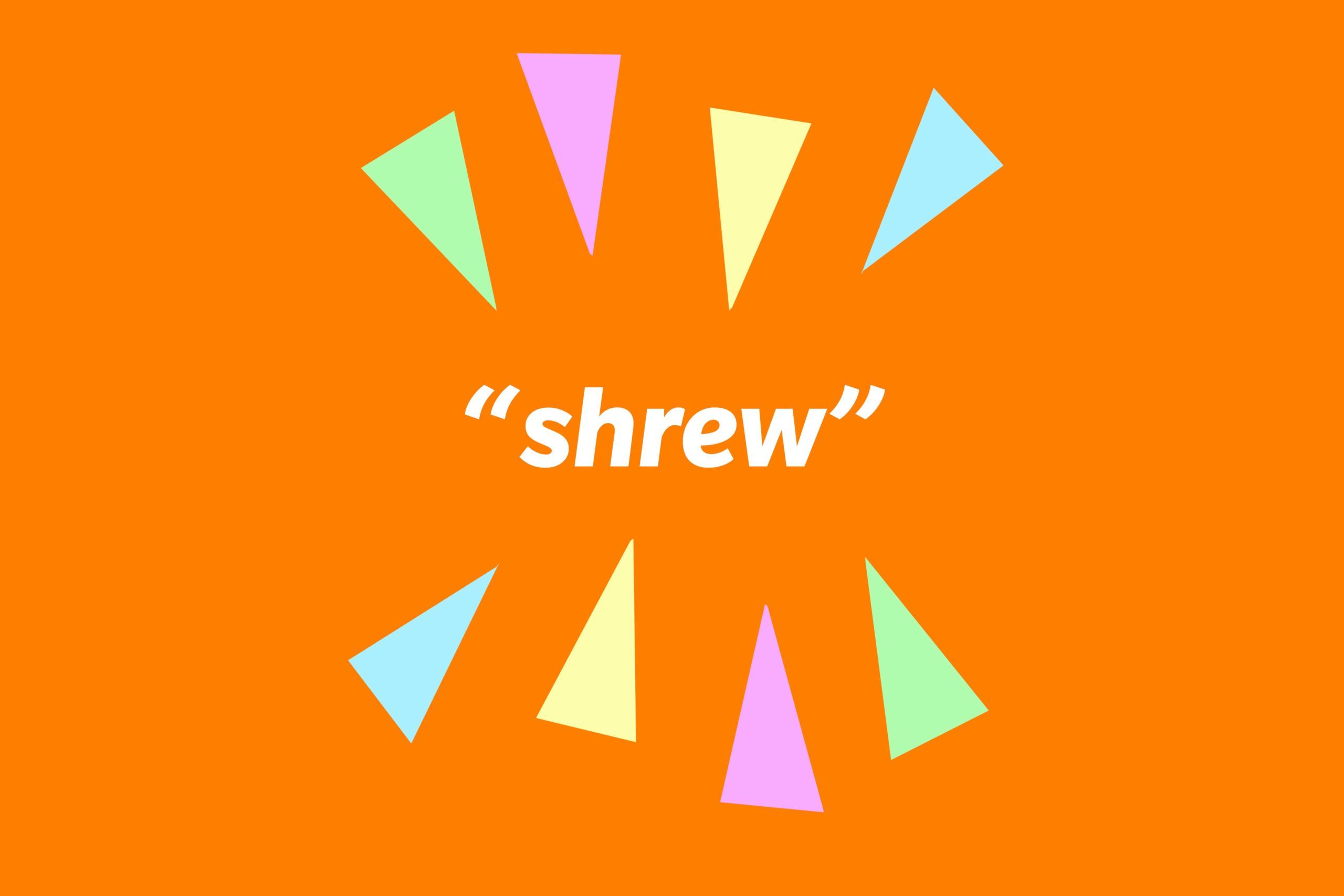
Shrew
Though not invented by Shakespeare, the word and concept of shrew famously appeared in his The Taming of the Shrew. A shrew is a small rodent with a pointy snout, but men couldn’t resist another opportunity to use an animal to describe women, and the word came to mean a “peevish, malignant, clamorous, spiteful, vexatious, turbulent woman,” according to a 1755 dictionary written by Samuel Johnson. The reason for this association is thought to be the belief that shrews (the rodent) had a venomous bite, which played a role in various superstitions. A woman called a shrew may also be described using another term reserved for women: shrill.
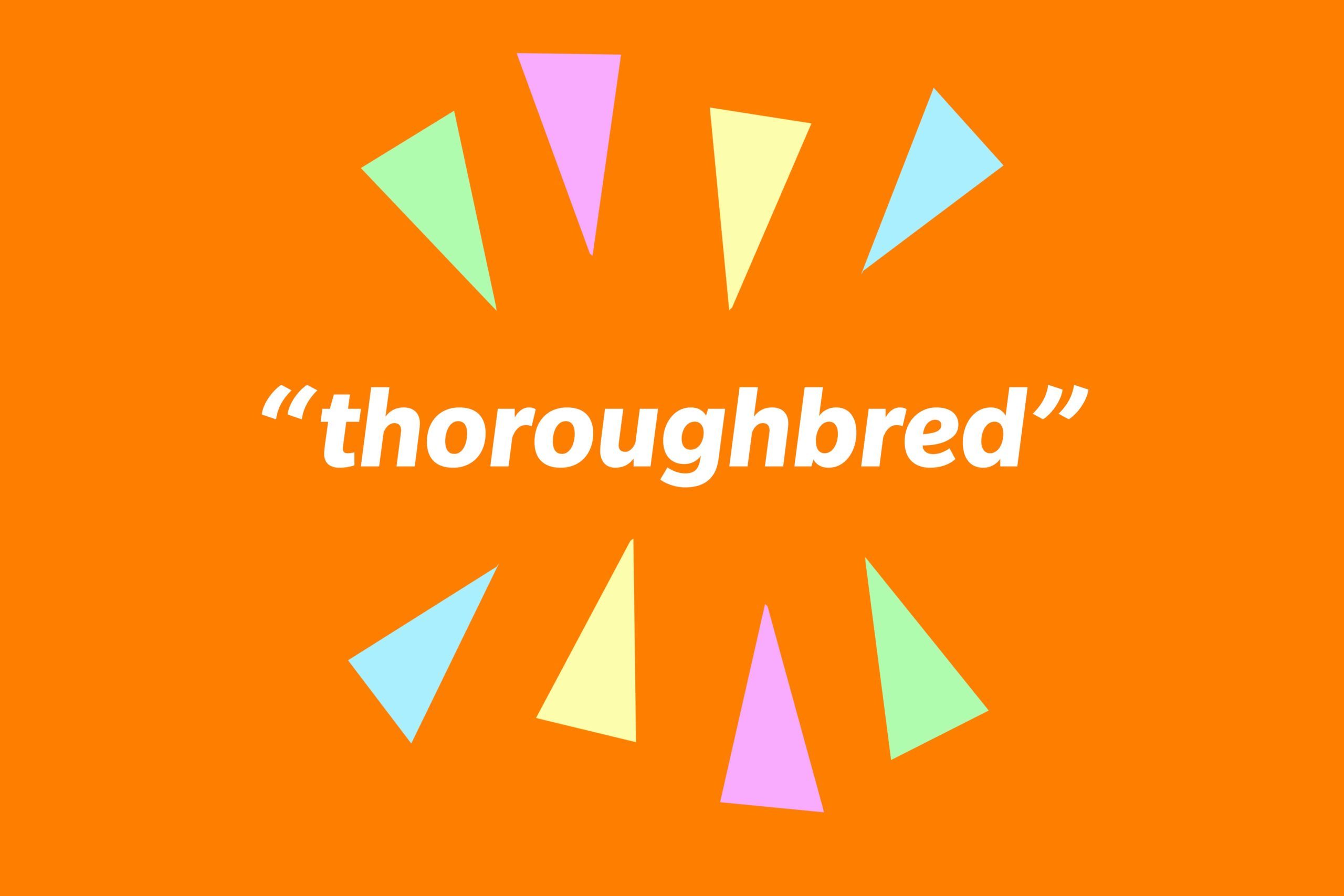
Thoroughbred
Here’s another instance of likening a woman to a type of animal, in a way that clearly establishes her place and purpose in society. According to Mastracchio, this usage was associated with the “Gibson Girl,” the standard of femininity in the late 19th and early 20th century idealized in print by artist Charles Dana Gibson. “People used the word thoroughbred to describe what is essentially the Gibson Girl,” she notes. “So, it’s pushing boundaries in terms of being quote-unquote ‘progressive,’ but still within the bounds of accepted femininity.” It’s one of those words that seem like a compliment but hide an insult, and while thoroughbred is sometimes applied to men, Mastracchio explains, it’s typically used to refer to Black men, and comes with a different (and racist) connotation.

Frigid
Yes, frigid means cold, but there’s a lot more to the story. As Mastracchio points out, this is another example of the Victorian perception of women as being frail and fragile because as a woman, if you got cold, it means you’d be seen as particularly weak. “It’s gendered in the sense that you would never call a male ‘frigid,’ because being cold is not something that is detrimental to one’s masculinity,” she explains. Terms like this are tied to the long history of inequality between men and women. Moreover, frigidity was formerly the medical term for a woman who has no interest in being intimate with her husband, or any other type of dysfunction (real or perceived) in that area.
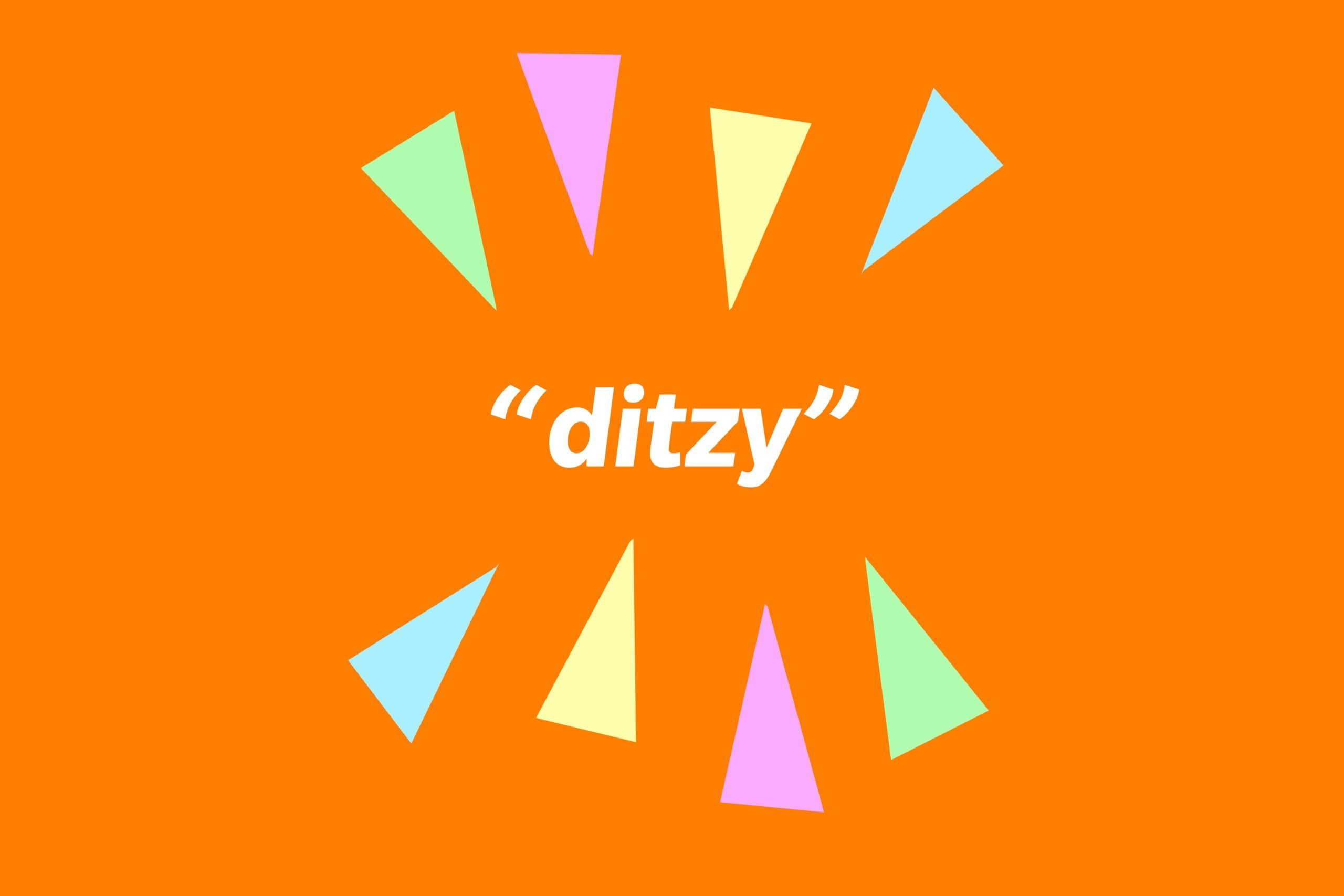
Ditzy
Though the exact origin of the word ditzy remains unknown, it’s another one that is exclusively used to describe a woman’s perceived intelligence (or rather, the lack thereof). “It’s another example of this intrinsic idea that women have their head somewhere else,” Mastracchio says. “You wouldn’t call a man ‘ditzy,’ because men are not categorized in those kinds of boxes. So it’s tapping into the idea that a woman’s physical head is not necessarily always on her shoulders.” Interestingly, the word ditz to describe someone who is ditzy didn’t enter our vocabulary until 1982. Calling someone a ditz or ditzy is a type of microaggression that frames the subject as someone who is scatterbrained and not very smart.
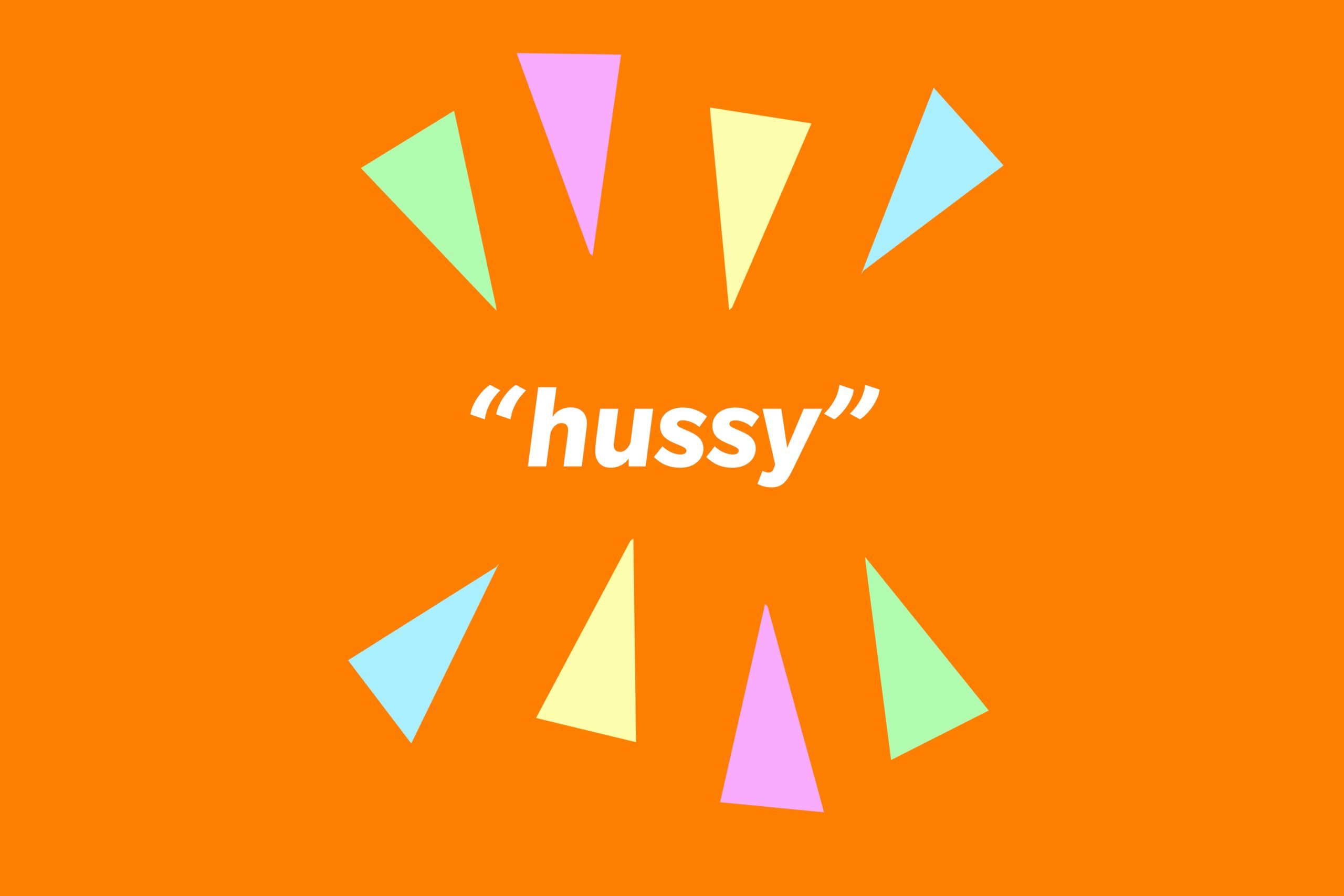
Hussy
Although the word hussy has always referred to women, it’s the change in connotation over time that makes it problematic today. Originally, hussy was a neutral term used to describe a female head of the household. This makes sense, given that it is a deformed contraction of the Middle English word husewif, which, you guessed it, means housewife. Traditionally, it was pronounced “huzzy,” but by the 20th century, the pronunciation shifted to match the spelling of the word. And while it started out meaning housewife, soon hussy was used to describe any woman or girl. By 1650, the term was narrowed even further, and used primarily to mean a woman who engages in questionable behavior.
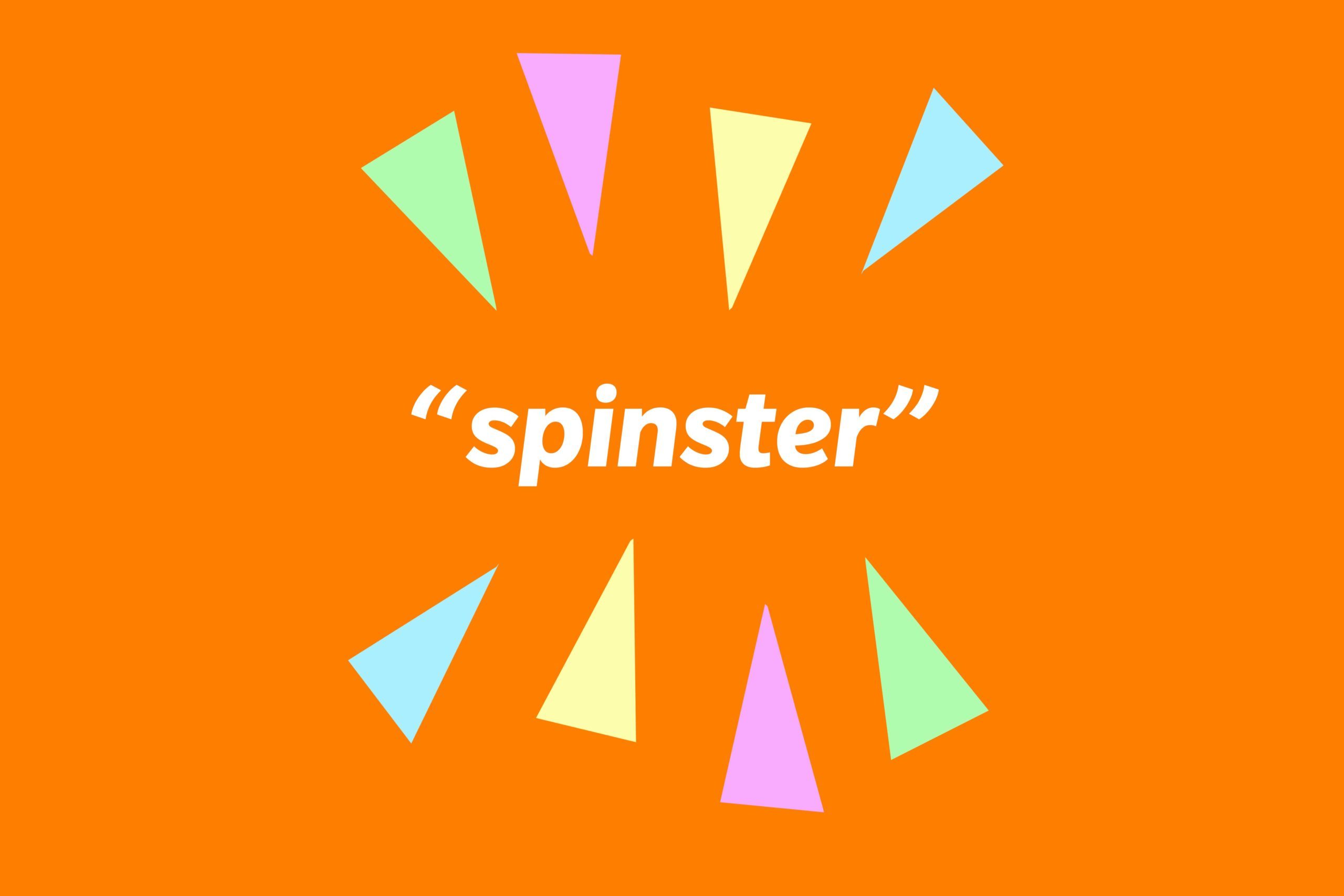
Spinster
In yet another example of nonequivalent words for men and women in the same position, we have spinster. Unmarried adult women are pitiful spinsters, while unmarried adult men are eligible bachelors. Staying single is seen as a choice for men, but for women, it is considered a shortcoming. Originally, spinster referred to a person who spun thread, and it applied to both men and women in that profession. Eventually, it evolved to refer to an unmarried woman who had to occupy her time or financially support herself by spinning thread or yarn. In fact, it became the official legal term for a single woman starting in the 1600s. This remained the case in England and Wales until 2005, when they also retired the word bachelor for a single man, according to Smithsonian Magazine.
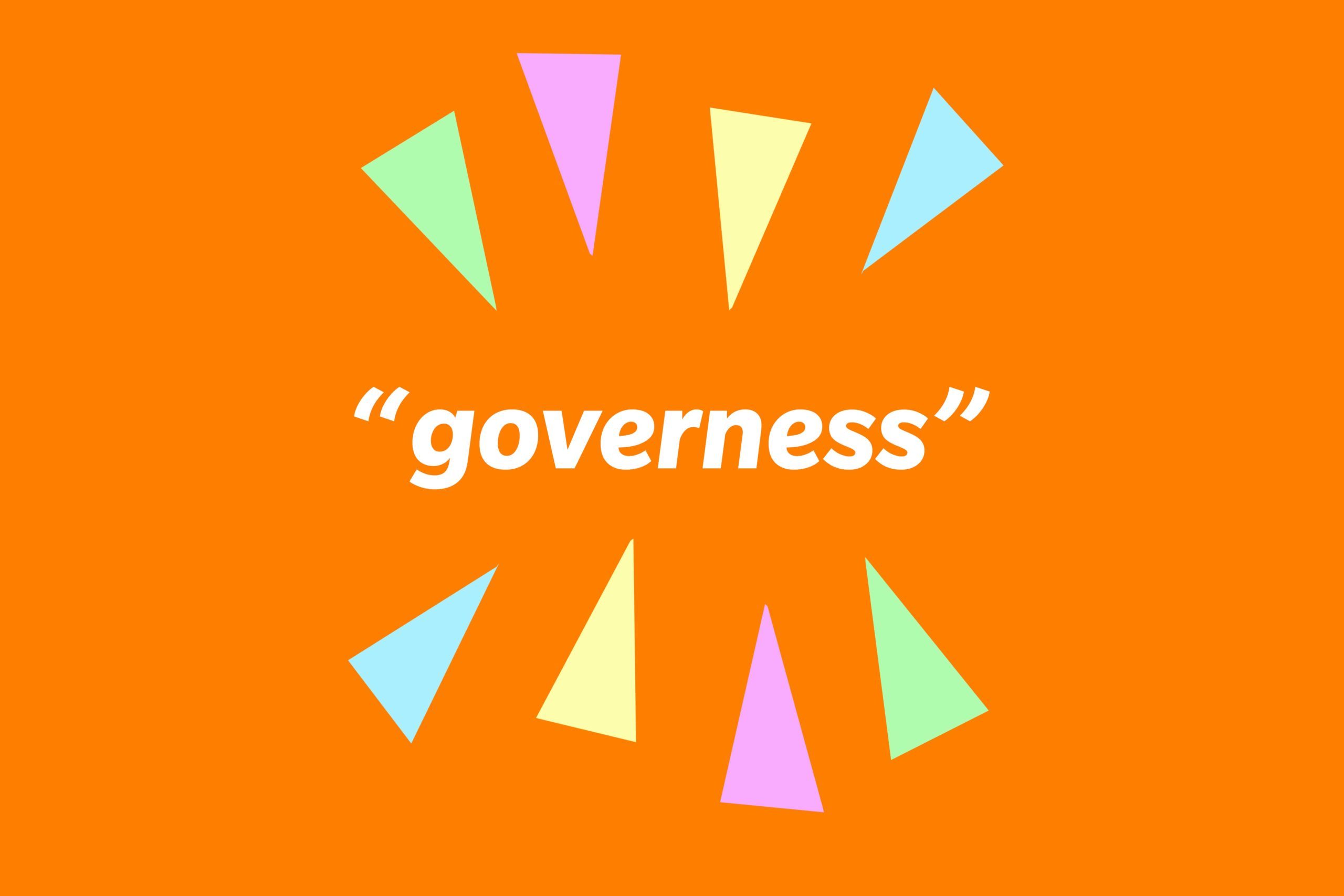
Governess
Hearing the word governess may conjure images of the classic 1964 movie, The Sound of Music, and Julie Andrews, who played a nun and governess in the musical. This context—a governess as a woman who takes care of children—it’s one of the common sexist phrases when you look back at its origins. It is the female equivalent of a governor, aka someone who rules or governs over a place or group of people. At least it was in the 15th century. But as time went on, the domain of a governess went from having authority over a territory or jurisdiction (in the geographic and political sense) to supervising and caring for children. Yet again, it reinforces the idea that women can be in charge of children and household duties, while men oversee everything else.
About the expert
|
Why trust us
At Reader’s Digest, we’re committed to producing high-quality content by writers with expertise and experience in their field in consultation with relevant, qualified experts. We rely on reputable primary sources, including government and professional organizations and academic institutions as well as our writers’ personal experiences where appropriate. We verify all facts and data, back them with credible sourcing and revisit them over time to ensure they remain accurate and up to date. Read more about our team, our contributors and our editorial policies.
Sources:
- Karla Mastracchio, communications expert and strategist with the Tatitlek Corporation
- Samuel Johnson’s Dictionary Online: “Shrew”
- Scientific American: “Gender Jabber: Do Women Talk More than Men?”
- McGill Office of Science and Society: “The History of Hysteria”
- Wall Street Journal: “Women Overtake Men as Majority of U.S. Workforce”
- Guardian: “Eight words that reveal the sexism at the heart of the English language”
- Smithsonian Magazine: “‘Spinster’ and ‘Bachelor’ Were, Until 2005, Official Terms for Single People”




















